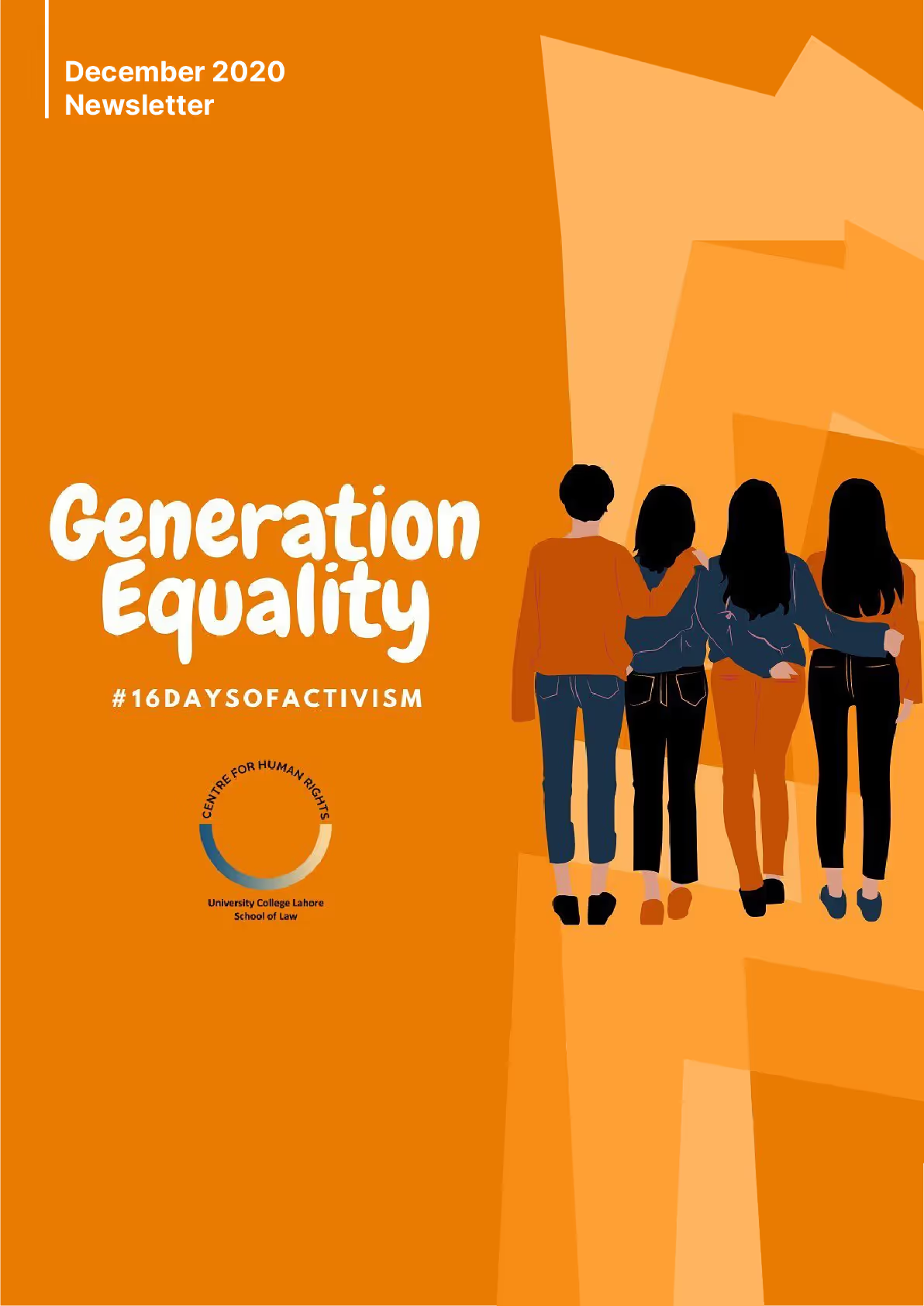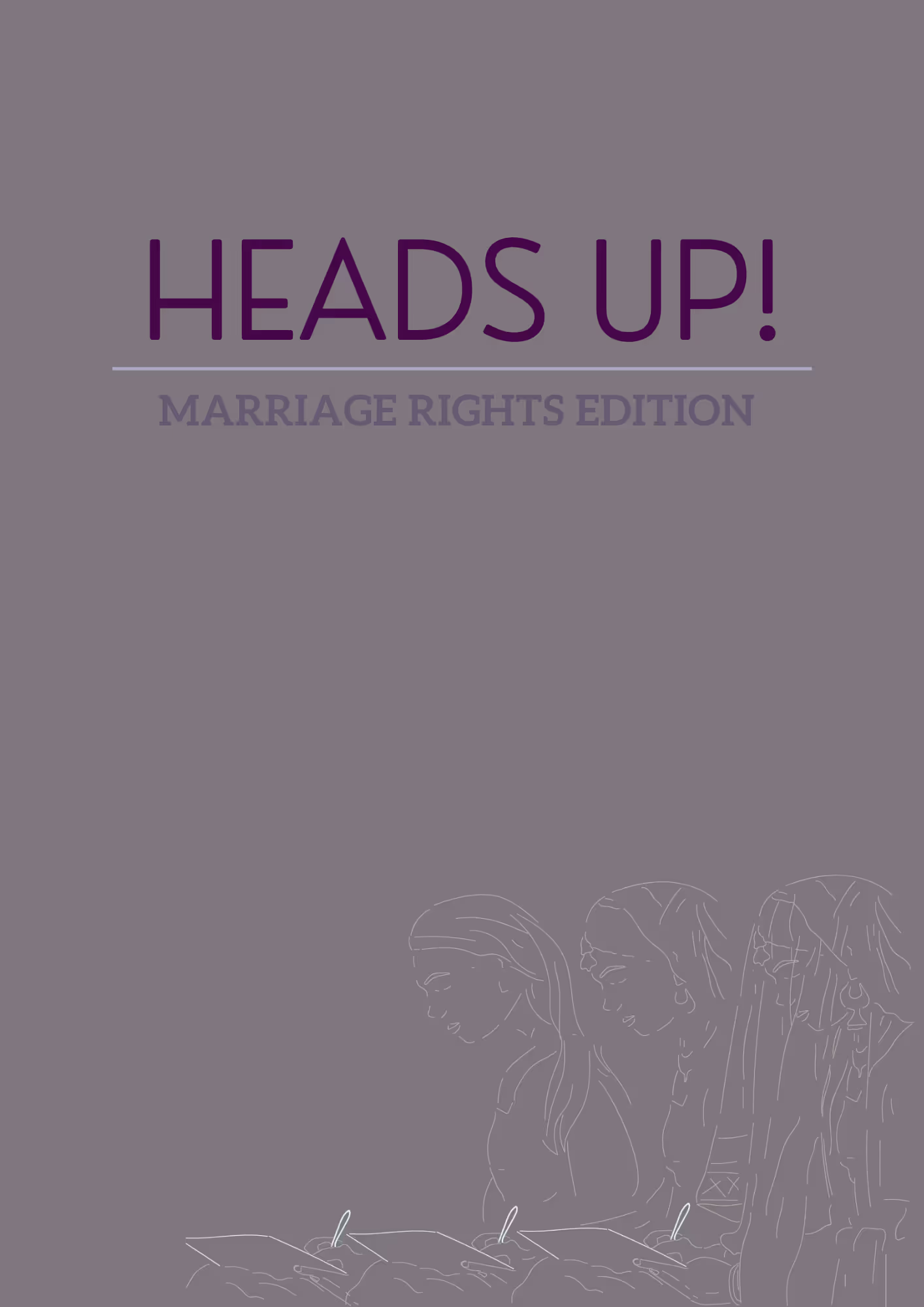
CFHR drives impactful change through research, advocacy, and legal reform. Our work spans governance, human rights, social justice, and technology, ensuring marginalized voices shape policy and legal discourse. Through innovative strategies, capacity building, and evidence-based solutions, we advance justice, strengthen protections, and foster systemic reform.

Refugee Rights
CFHR addresses the global refugee crisis, focusing on Pakistan's Afghan refugees. Through research, legal analysis, and a Refugee Rights Clinic, they empower students to advocate for inclusive policies, bridging protection gaps and championing education as a universal right.

Marriage Rights
CFHR empowers Pakistani women by increasing awareness of marriage rights through workshops, campaigns, and legal aid. We train key stakeholders and engage in strategic litigation to address systemic issues and ensure equitable enforcement of marriage laws.

Transgender Rights
CFHR champions transgender rights in Pakistan through research, advocacy, and policy implementation, working to eliminate discrimination and ensure access to education, healthcare, and employment opportunities.

Gender-based Violence
CFHR champions gender justice by combating gender-based violence through impactful research & policy advocacy driving systemic reform, community awareness & education initiatives empowering individuals with knowledge of their rights, and targeted capacity building & legal support to strengthen justice systems for survivors.

Smuggling of Migrants
CFHR combats migrant smuggling in Pakistan through evidence-based policy reform, law enforcement training, and creating safe migration pathways, while addressing root causes and providing legal protection to vulnerable migrants.

Trafficking in Persons
CFHR combats Pakistan's human trafficking crisis through research, policy reform, law enforcement training, victim support, and national/international collaboration.
Related Publications

Accountability for Rape - A Case Study of Lodhran
Investigating justice for Pakistani rape victims, this project analyzed 63 trial court files from District Lodhran, revealing procedural challenges contributing to high acquittal rates.

December 2020 16 Days of Activism
Dive in to see how we’re building a safer, more just Pakistan for all.

Diagnostic Study of Nikanama in Punjab: A Review of Women's Marriage Rights
This research assesses women's marriage rights in Punjab, focusing on the nikkahnama. The study analyzed 1,150 nikkahnamas, along with surveys and interviews to understand gaps impacting women's rights.

Dissolution of Marriage in Punjab: The Cost of Divorce for Muslim Women
This report examines women's access to justice when dissolving marriages in Punjab, focusing on four methods: talaq, khula, delegated divorce, and mutual divorce. The research, conducted in Lahore and Pakpattan, used both quantitative and qualitative methods.

Economic Cost of Violence against Women
Violence against women significantly impacts victims, society, and the economy. This report examines the economic costs of this violence globally and in Pakistan, highlighting the need for improved data collection and effective prevention policies.

Fact Sheet: Diagnostic Study of Nikahnamas in Punjab
This Fact Sheet provides key insights from the Diagnostic Study of Nikkahnamas in Punjab: A Review of Women's Marriage Rights.

Family Law Report on Women’s Marriage Rights in Pakistan
This report, a collaboration between the Centre for Human Rights and the American Bar Association Rule of Law Initiative, with support from Minto & Mirza, examines Pakistani laws affecting Muslim women's marriage rights. It clarifies ambiguities regarding divorce, custody, maintenance, and property, presenting case law concisely.

Handbook on Women’s Marriage Rights Legal Aid & Advocacy Clinics in Pakistan
This handbook helps law professors in Pakistan establish legal aid clinics focused on women's marriage rights. It covers clinical legal education, practical skills, and substantive issues for clinic setup and training.

Harassment, Bullying & Misconduct Policy
This template for educational Institutions helps to promote survivor-sensitive policies to prevent harassment, bullying, and misconduct through legal alignment in universities in Pakistan.

Human Rights Review Vol I
CFHR’s inaugural academic publication featuring critical legal analysis and commentary on pressing human rights issues in Pakistan and beyond. Authored by both legal professionals and students, it explores topics such as counter-terrorism laws, judicial reform, gender justice, torture, drone strikes, and the evolution of public interest litigation. The journal aims to spark informed dialogue and elevate legal scholarship on human rights in the South Asian context.

Human Rights Review Vol II
CFHR's section journal featuring legal analysis, commentary, and original research on human rights issues in Pakistan. Edited by legal scholars and student contributors, this volume explores topics such as maternal mortality, counter-terrorism laws, preventive detention, religious attire, and the right to a fair trial. With a blend of academic and practitioner perspectives, the journal provides critical insights into constitutional reforms, gender justice, and the intersection of Islamic law and human rights in the Pakistani legal context.

Human Rights Review Vol III
CFHR’s legal journal featuring critical analyses on Pakistan’s human rights landscape. This volume covers a broad spectrum of issues, including the legal flaws in anti-terrorism laws, military courts, enforced disappearances, the right to a fair trial, juvenile justice, madrassa reform, and Pakistan’s obligations under international conventions like UNCAT. With contributions from legal professionals and scholars, the journal promotes in-depth dialogue on the intersection of law, state accountability, and fundamental rights.

Human Rights Review Vol IV
Volume IV continues CFHR’s mission to critically examine Pakistan’s human rights landscape through legal analysis and field-based insights. This edition delves into pressing issues including custodial torture, the right to health, climate justice, freedom of expression, and protections for vulnerable communities—such as transgender individuals and religious minorities. Contributions by students and legal professionals explore the justiciability of economic and social rights in Pakistan, offering both critique and actionable frameworks for reform.

Human Rights Review Vol V
This volume addresses issues such as fair trial standards for mentally ill prisoners, child marriage through informal justice systems, blasphemy law abuse, and the compatibility of Sharia with international human rights law. With contributions from legal professionals and students, it offers comparative legal analysis and reform-oriented insights grounded in both international treaties and domestic practice.

Human Rights Review Vol VI
This volume delves into the challenges of anti-terrorism legislation, its human rights implications, and the role of judicial oversight. It features original research on the design and implementation of counter-terror laws, the impact of hyper-nationalism on human rights, and the evolving balance between state power and civil liberties.

Human Rights Review Vol VIII
This volume focuses on barriers to women’s understanding and enjoyment of their marriage rights in Pakistan. Featuring in-depth legal and sociological analysis, this edition addresses underage marriage, the nikahnama’s role in protecting women’s rights, marital rape, and challenges faced by women seeking divorce. With contributions from leading scholars and legal practitioners, it offers a critical look at systemic issues and explores reforms rooted in both Islamic law and international human rights frameworks.

Humanizing Refugees in Pakistan
The Refugee Rights Clinic engaged 21 students from UCL and KCW, offering practical research and advocacy experience under CFHR experts, focusing on refugee children's right to education and legal identity in Pakistan.
.avif)
Inter-Provincial Consultation on Women's Marriage Rights in Pakistan

Maternal Mortality in Low Income Households in Lahore, Pakistan
Pakistan has a high maternal mortality rate, partly due to inadequate healthcare for impoverished women. A study of 23 low-income women in Pakistan identified obstacles to adequate pregnancy care and offered recommendations to improve maternal health outcomes.

Nikahnama Training-of-Trainers Curriculum
The Centre for Human Rights, with the Council of Islamic Ideology, offers a Training-of-Trainers Curriculum on Pakistan's Nikahnama, empowering Nikah Registrars with legal and Islamic insights on marriage rights.

Preventing Smuggling of Migrants from Pakistan to Malaysia (2024)
CFHR's report on Pakistan-Malaysia migration analyzes trends, abuse, and policy gaps, offering recommendations to improve legal pathways and reduce irregular migration.

Rights of Transgender Persons in Pakistan
CFHR undertook a project to assess the effectiveness of the 2018 Act in addressing the challenges faced by transgender individuals. Law students at CFHR’s Human Rights Clinic conducted a literature review, examining legal and societal issues under the supervision of the project lead.

Strategic Litigation Report: Women’s Marriage Rights in Pakistan
The Centre for Human Rights and the American Bar Association Rule of Law Initiative collaborated on a report analyzing Pakistani marriage and family laws. This report, supported by Axis Law Chambers, identifies issues like inconsistent minimum marriage ages and weak women's financial rights post-divorce.
%20Report%20on%20Transgenders%27%20Access%20to%20Justice.avif)
Technical Assistance Needs Assessment (TANA) Report on Transgenders' Access to Justice
TANA assesses justice access barriers for transgender people in Sindh, offering data-driven insights and reforms to strengthen inclusion and accountability.

The Use of the Two-Finger Test in Pakistan
The Two Finger Test, a discredited medico-legal practice assessing virginity through vaginal muscle laxity, violates human rights and lacks scientific basis, yet persists in countries like Pakistan. Research by law students aims to eliminate this test through legal and societal reform, addressing its continued use and arbitrary court interpretations.
.avif)
Training Needs Assessment - Summary Findings Report WMRs
Local Action, Global Impact
We work across Pakistan, driving legal reform, advocacy, and policy change to protect human rights and empower communities.



